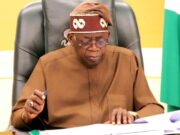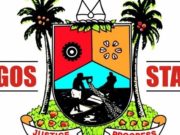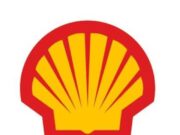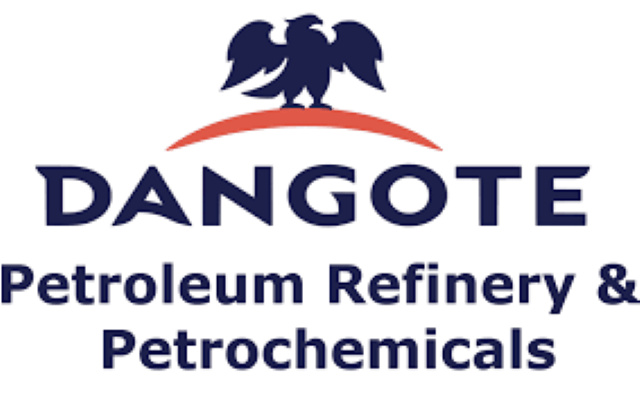The Federal Government sold crude oil valued at ₦219.38bn to the Dangote Petroleum Refinery in the first four months of 2025.
The government also earned $1.59m from crude oil exports in April 2025, during the period it suspended sales of domestic crude allocations to the Dangote refinery and local refiners.
These details were contained in internal documents from the Nigerian National Petroleum Company Limited, submitted at the Federation Account Allocation Committee meetings, and obtained by The PUNCH on Wednesday.
The Federation Accounts Allocation Committee said a total revenue equivalent of N2.53bn was realised during the period, based on an average exchange rate of ₦1,595.689 to the dollar, as provided by the Central Bank of Nigeria.
On March 19, the Dangote refinery suspended the sale of its petroleum products in naira due to a stalemate in the naira-for-crude deal between it and NNPCL, which appeared to have failed.
The 650,000 barrels per day capacity refinery lamented that there was a mismatch between its sales proceeds and its crude oil purchase obligations, which it said are currently denominated in US dollars.
“Dear valued customers, we wish to inform you that the Dangote Petroleum Refinery has temporarily halted the sale of petroleum products in Naira. This decision is necessary to avoid a mismatch between our sales proceeds and our crude oil purchase obligations, which are currently denominated in US dollars.
“To date, our sales of petroleum products in naira have exceeded the value of naira-denominated crude we have received. As a result, we must temporarily adjust our sales currency to align with our crude procurement currency,” the firm announced. During this period, the cost of loading petrol at private depots in Lagos jumped to above N900 per litre.
However, 21 days after the suspension, the Federal Executive Council officially ordered the full implementation of the naira-for-crude oil supply deal with local refiners.
It stated that the initiative with local refineries is not a temporary measure, but a “key policy directive designed to support sustainable local refining.” The statement read, “The Technical Sub-Committee on the Crude and Refined Product Sales in Naira initiative convened an update meeting on Tuesday to review progress and address ongoing implementation matters.
“The stakeholders reaffirmed the government’s continued commitment to the full implementation of this strategic initiative, as directed by the Federal Executive Council.”
Despite the directive, the Dangote refinery has continued to describe the crude allocation as inadequate, a situation it says has forced it to rely heavily on imports from the United States to sustain operations.
But findings by The PUNCH revealed that the government, through the Nigerian National Petroleum Company Limited, sold crude worth N219.38bn to the 650,000-barrel-per-day Lagos-based refinery.
The documents showed that nine cargoes were delivered to Dangote refinery, totalling 1,901,850 barrels sourced from the Okwuibome field operated by Sterling Oil Exploration & Energy Production Company under Production Sharing Contracts and the Nigerian Agip Exploration. The crude was sold at unit prices ranging from $74.87 to $80.34 per barrel, using exchange rates between N1,501.22/$ and N1,562.91/$.
One of the documents seen by The PUNCH read, “The Dangote domestic lifting is payable in naira based on Afrexim Bank advised exchange rate.” A monthly breakdown showed that crude oil supply from the government to the refinery surged by over 538 per cent between January and April 2025.
An analysis of official figures showed that crude sales to the Lagos-based refinery stood at N17.52bn in January, rising steadily by 88 per cent to N32.95bn in February, then by 73 per cent to N56.97bn in March, and spiking by 96.4 per cent to a record N111.95bn in April.
While crude oil supply to the refinery surged to N219.38bn between January and April 2025, fresh findings by The PUNCH show that the Federal Government earned a total of N231.47bn from crude exports to foreign buyers within the same period.
This development reveals a nearly balanced split in the government’s crude oil strategy: between boosting domestic refining capacity and maintaining foreign exchange earnings through exports.
Documents reviewed that the NNPCL sold a combined $153.03m worth of crude oil to international partners within the four-month window, with naira earnings varying according to monthly exchange rate fluctuations advised by the Central Bank of Nigeria.
A breakdown of the crude oil export earnings showed that in January, the government earned $31.13m, which translated to N45.99bn at an exchange rate of N1,477 per dollar. In February, export sales rose to $41.23m or N61.50bn at N1,491/$, while March saw a significant jump to $79.07m, amounting to N121.44bn at N1,535/$. However, in
April, earnings plunged sharply to $1.59m, equivalent to N2.53bn at an average rate of N1,595 per dollar.
On Tuesday, fuel marketers urged the Federal Government to implement urgent measures to prevent petrol and diesel prices from becoming unaffordable for Nigerians.
While the recent price increase before Tuesday’s drop offered a potential boost to the government’s oil revenue projections of $75 per barrel benchmark, it also led to higher costs of refined petroleum products from key suppliers, including the Dangote Petroleum Refinery.
As a result, the National Vice President of the Independent Petroleum Marketers Association of Nigeria, Hammed Fashola, called on the administration of President Bola Tinubu to introduce mechanisms that would ensure the affordability of fuel, especially for low-income earners.
He recommended that the Presidential Committee on the naira-for-crude initiative should peg the price of crude oil allocated to domestic refineries at levels that enable cost-effective production.
According to stakeholders, making crude available at discounted rates to local refiners could ease the burden on citizens and reduce the risk of inflationary pressures triggered by rising fuel costs.
The IPMAN VP maintained that the crude oil set aside for local consumption should be sold to local refineries at an agreed rate by all parties, and the product should be sold locally at a reduced price.
“This is the time to take advantage of the Dangote refinery. The government needs to work closely with Alhaji Aliko Dangote. This is the time we need the naira-for-crude deal mostly.”
But a source close to the Naira-for-Crude arrangement hinted that the deal may not be feasible, stressing that it was only designed to forfeit crude sales in dollars, a requirement aligned with international trading standards.
A further breakdown of the May 2025 Federation Account document revealed that 11,231,944.79 barrels of crude were exported in March 2025, yielding $1.59bn in receipts remitted in April. In contrast, the sales to local refineries such as the Dangote Refinery, which received about 5 million barrels in previous months, dropped to zero.
Gross receipts from oil and gas sales for April stood at $6.25bn, equivalent to N1.01tn at the average exchange rate of N1,595.689/$ as advised by the Central Bank of Nigeria for April FAAC items.
Gas export fetched $4.56bn, while arrears from NLNG feedstock gas receipts contributed $6.13m. Other receipts from crude oil sales and gas payback brought in additional revenue of over $130m.
However, compared to March figures, most revenue heads recorded significant declines. For instance, receipts from Export Crude Oil dropped by 97.97 per cent from N771.46bn in March to N15.63bn in April. Similarly, Domestic Crude receipts, which previously accounted for N136.36bn, showed no inflow in April.
The Federation also transferred N120.93bn as total revenue, significantly lower than the N204.85bn shared in March, reflecting a 41 per cent drop.
Credit: punchng.com









































































